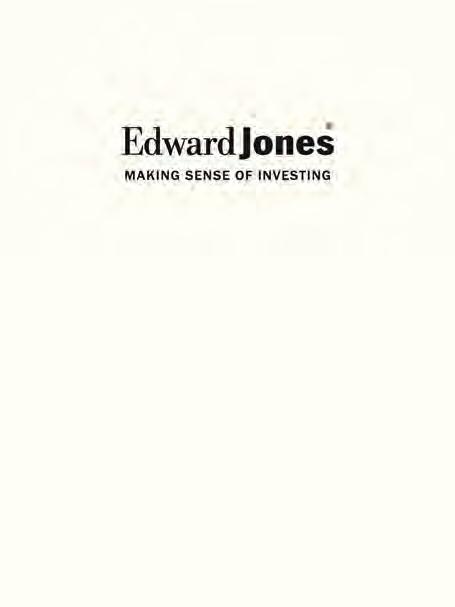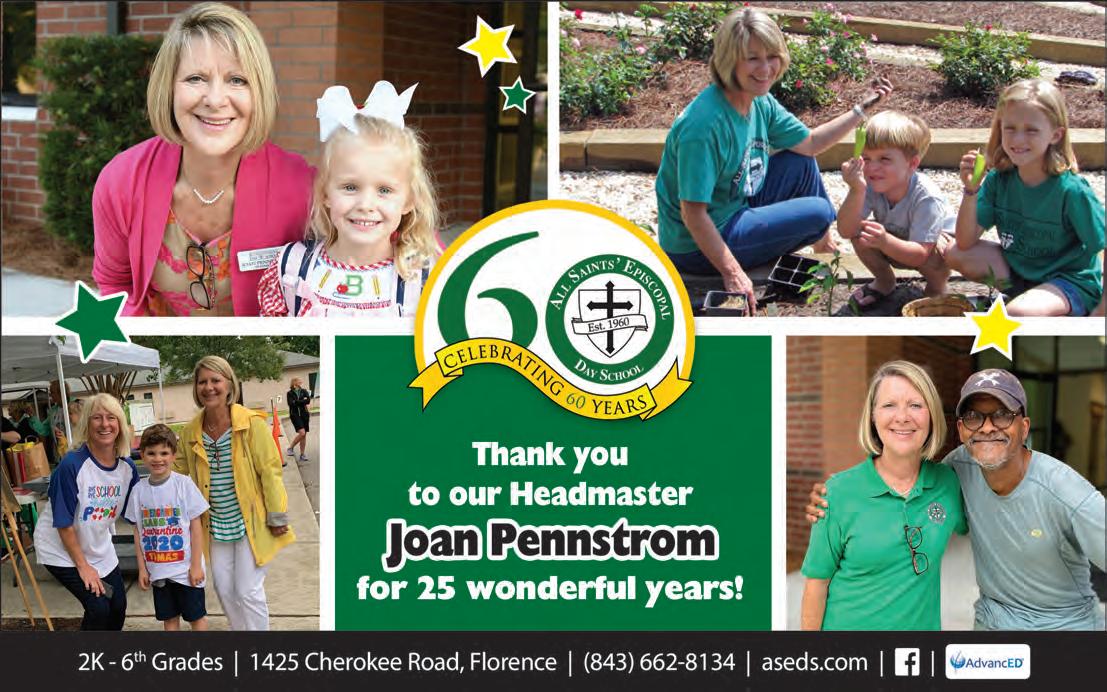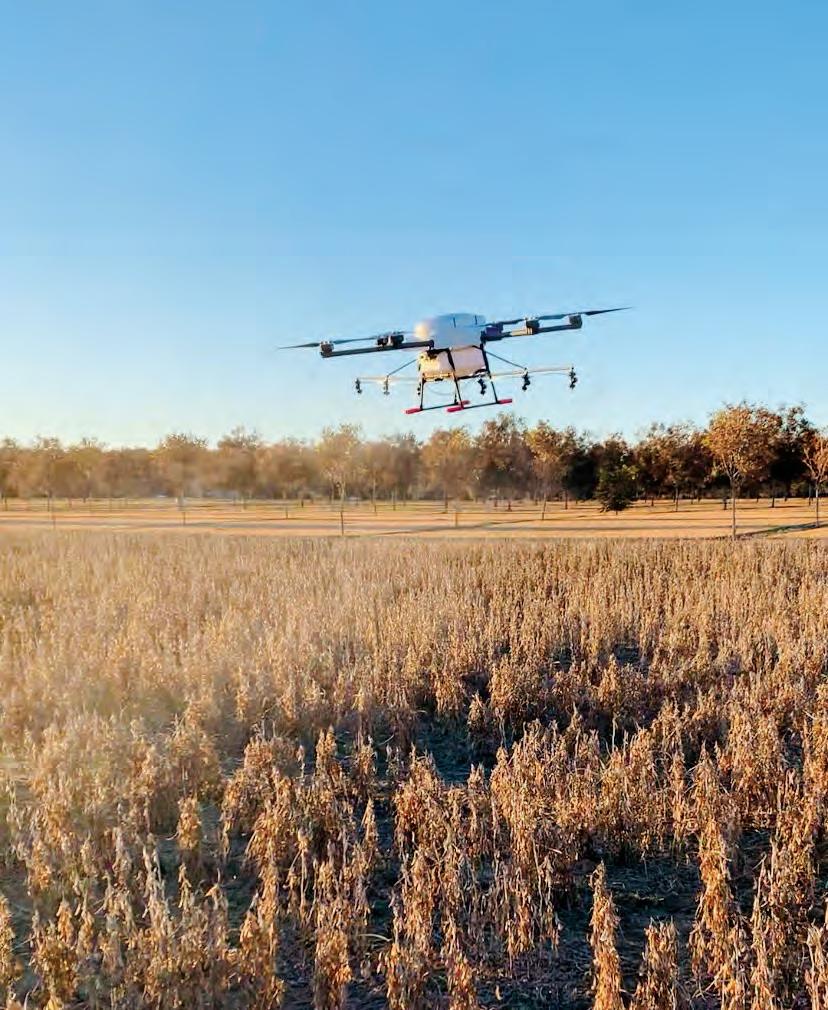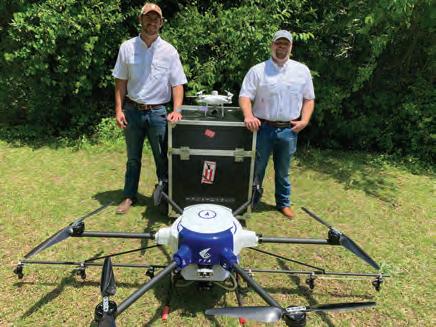
7 minute read
Edward Jones: Don't Play Politics with Your Portfolio
from June 2020
by VIP Magazine
DON’T PLAY POLITICS
WITH YOUR PORTFOLIO
Advertisement
You’re probably aware this is an election year. During the next several months, the candidates will discuss issues that should greatly interest you as a citizen. But as an investor, how concerned should you be with the results of the presidential and congressional elections?
Maybe not as much as you might think. At different times, the financial markets have performed well and poorly under different administrations and when different parties have controlled Congress. And after all the votes are counted, outcomes in the investment markets can be unpredictable. Consequently, you’ll be helping yourself greatly by not making big moves in your portfolio in anticipation of new legislation or political moves down the line.
Of course, that’s not to say that nothing emerging from Washington could ever have an impact on your investment decisions. For example, if a future president and Congress decide to change the capital gains tax rate, it could affect some of your choices, such as which stocks and stock-based mutual funds you should buy, and how long you should hold them.
Overall, though, your investment results will ultimately depend on actions you can take, including these:
Making changes for the right reasons – While the results of an election may not be a good reason to make changes in your investment portfolio, other factors can certainly lead you to take steps in this direction. For one thing, as you get closer to retirement, you may want to shift some – though certainly not all – of your investment dollars from more growthoriented vehicles to more conservative ones. Conversely, if you decide, well in advance, that you might want to retire earlier than you originally thought, you may need to invest more aggressively, being aware of the increased risk involved.
Following a long-term strategy– In pretty much all walks of life, there are no shortcuts to success – and the same is true with investing. You need to follow a long-term strategy based on your goals, risk tolerance and time horizon, and you need the patience and perseverance to keep investing in all markets – up, down and sideways.
Avoiding mistakes – Many people think of an investment mistake as failing to “get in on the ground floor” of some company that ultimately grew to huge proportions. But it’s pretty hard to become an early investor in companies like these, many of which start out as privately held businesses without any stockholders. Furthermore, companies with shorter track records can be much more unpredictable investments. However, you do want to avoid some real mistakes, such as chasing “hot” stocks. By the time you hear about them, they may already be cooling off, and they might not even be appropriate for your needs. Another mistake: failing to diversify your portfolio. If you only own one type of asset, such as growth stocks, you could take a big hit during a market downturn. Spreading your dollars over a wide range of investments can help lower your risk exposure. (However, diversification by itself can’t guarantee a pro t or protect against all losses.)
After Election Day, regardless of the outcome, you can help keep your portfolio on track by not playing politics with it.
Edward Jones, its employees and financial advisors cannot provide tax or legal advice. You should consult your attorney or qualified tax advisor regarding your situation.



DroneSpray
“We provide spot treatment for vulnerable and infected areas, such as a 50-acre field with only two acres of stressed crop. We can go out and treat those two specific acres without the farmer having to load up his sprayer and use it. If fields are too wet for traditional treatment, we can get in the field and treat for the farmer. If we are able to take just one task out of farmers’ hands, then we can free him or her up to focus on other areas that they may need to focus on.” -Seth Lowe & David Leeth

Tomato Bisque
Innovative Technology to Care for Your Crops

When it came to establishing the foundation of DroneSpray, Seth Lowe and David Leeth wanted to find a safer and more efficient way to manage crops and land. After discussing ways their business could achieve this, they discovered through precision agriculture technology that they could help farmers and landowners reduce costs and improve yield. Through DroneSpray, Seth and David can interact with farmers and landowners in hopes of understanding the challenges faced during the growing season. With this knowledge, the guys are able to utilize DroneSpray technology to save farmers’ time and money to ensure they maximize their return on investment.
So far, their efforts have paid off. For example, they have seen success with utilizing plant count technology to provide accurate data for pine tree tracts and row crop stands. Seth shares, “We have not discovered a particular crop we couldn’t count using our software. The data we collect can then be provided to the landowner so they can analyze plant emergence and germination to determine if a replant in bare areas is needed. An assessment can also be made on seed quality, and yield potentials. Providing stand count data gives the landowner a better understanding of their yield potential so they can take the necessary steps to maximize their investment.”
DroneSpray has also found success utilizing NDVI imaging into the data they provide landowners. NDVI imaging stands for Normalized Difference Vegetation Index. This index scales from -1 to +1 and is calculated from visible and near infrared light that reflects off of vegetation. David explains, “For example, a healthy patch of strawberries will show dark levels of green (closer to +1 on the scale) because it absorbs most of the visible light and reflects more of the near-infrared light. The opposite would be a field that is struggling with disease or such. This would be closer to -1 on the NDVI scale because it is absorbing more of the near-infrared light and reflecting more visible light.
With our NDVI imaging, we can also run reports that detect water logging, drought, disease, weed, nitrogen status, and pest analysis.” Through the usage of multispectral NDVI imaging, farmers’ and owners’ can determine plant health. David shares, “This allows them to quickly identify issues in the field, which saves them time by not having to scout it. It also allows them to be proactive instead of reactive if treatment is needed.” While they cannot detect specific pests on plants, they can detect where there is presence of a pest and crop stress is being shown. Seth explains, “We are working with Carolina Seed Systems, a startup company located here in the Pee Dee, to identify when sugarcane aphid is present in their sorghum. Once the pest is identified, actions can be put in place to provide safe, swift, and precise treatment. This can help eliminate the pests before it spreads and causes further damage.” If you’re not a farmer, that’s ok because the guys also offer anyone interested in a NDVI or regular aerial survey of their home, land, or property.
story by Ashley Elvington
When it comes to deciding whether you should use DroneSpray instead of commercial herbicide or pesticide, the benefits are a-plenty. Seth explains, “We provide spot treatment for vulnerable and infected areas, such as a 50- acre field with only two acres of stressed crop. We can go out and treat those two specific acres without the farmer having to load up his sprayer and use it. If fields are too wet for traditional treatment, we can get in the field and treat for the farmer. If we are able to take just one task out of farmers’ hands, then we can free him or her up to focus on other areas that they may need to focus on.”

As their business vision expresses, Seth and David are helping "the world grow safer, more conservative, and more precise one field at a time." Contact them today to learn how DroneSpray can benefit your property! “Let’s Grow Together!”
Seth Lowe and his wife Peyton share two four-legged children, Bailey and
Duke. Seth is employed with Nucor Steel and Peyton is a nurse at McLeod Regional Medical Center. David Leeth lives in Hartsville with his dog, Reese.
Both Seth and David, formerly roommates during senior year of college at the Citadel, are Hartsville natives and returned shortly after graduating. To learn more, visit www.dronespray.net.









